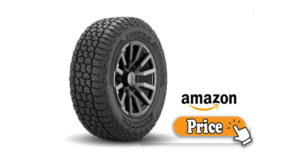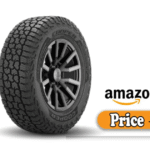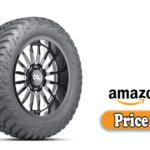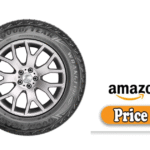When it comes to buying new tires, most of us look for the sweet spot between price and performance. Tires are more than rubber circles; they’re critical to your safety, ride comfort, and fuel efficiency.
Among the top names in the tire industry, Cooper Tires often comes up as a budget-friendly yet reliable option. But just how much value are you getting for the Cooper Tires price?
Let’s take a deep dive into what makes Cooper Tires stand out, what I liked (and didn’t), how they performed, and how they compare to other brands.
If you’re considering a set of Coopers, this honest review will help you make an informed decision beyond just the sticker price.
What I Like
There’s a lot to like about Cooper Tires, especially considering the price point. Here are a few standout qualities:
1. Great Value for the Price
Cooper Tires often cost less than premium brands like Michelin or Bridgestone but offer nearly comparable performance in many categories. This makes them an excellent choice for drivers who want quality without breaking the bank.
2. Impressive Tread Life
Most Cooper tires come with generous mileage warranties, 45,000 to 80,000 miles, depending on the model. From a cost-per-mile standpoint, the Cooper Tires price becomes even more attractive over time.
3. Variety of Options
Whether you drive a compact car, SUV, truck, or even a performance vehicle, Cooper has a tire that fits. Their product lineup is broad, and they cater to both everyday drivers and off-road enthusiasts.
4. Made in the USA
While many tire companies manufacture overseas, Cooper still produces a large portion of its tires in American factories. That’s a selling point for buyers who prioritize domestic manufacturing.
What Could Be Better
No brand is perfect, and Cooper has its drawbacks too.
1. Wet and Winter Traction
Some models, particularly older all-season versions, struggle in wet or icy conditions compared to top-tier brands. If you live in a region with harsh winters, you might want to pair them with dedicated winter tires.
2. Noise Levels
A few Cooper tire models tend to get noisier as they wear. This isn’t uncommon with budget-friendly tires, but it’s something to consider if cabin quietness is important to you.
3. Inconsistent Dealer Support
Depending on where you live, it may be harder to find Cooper Tires at your local shop compared to bigger brands. Online options are available, but installation can be a hassle if your installer doesn’t carry them. 👉🏿👉🏻 Check the Latest Price and Offer at Amazon 👈🏻👈🏿
👉🏿👉🏻 Check the Latest Price and Offer at Amazon 👈🏻👈🏿
My Personal Experience
I recently replaced the tires on my mid-size SUV with the Cooper Discoverer AT3 4S, one of their more popular all-terrain models. My decision came down to price, performance, and reputation. Here’s how things went:
- Installation: Smooth. I ordered online and had them installed locally. The tires arrived quickly, and the cost was about $150 less than the equivalent set from a premium brand.
- Ride Comfort: Impressive. Even on rough pavement, the tires absorbed bumps better than I expected.
- Handling: On dry roads, they performed great, precise steering and solid grip.
- Fuel Economy: No significant drop, which surprised me since these were all-terrain tires.
- Off-road: I took a weekend camping trip that included gravel and mild mud trails, no issues whatsoever.
In short, I was genuinely impressed, especially considering the Cooper Tires price I paid.
Design
Cooper puts real thought into their tire design, focusing on a mix of durability, traction, and comfort. Here are some key features you’ll find in many of their tire lines:
1. Tread Patterns
Aggressive patterns in off-road models like the Discoverer series help with traction and water evacuation. Touring tires like the Cooper CS5 have a more refined tread for quiet highway driving.
2. Silica-Infused Compounds
These improve grip in both wet and dry conditions while helping with rolling resistance and fuel efficiency.
3. 3D Micro-Gauge Siping
This design improves stability and prolongs tire life by distributing pressure evenly across the tread.
4. Armor-Tek3 Construction
Found in Cooper’s rugged lines, this enhances durability and resistance against punctures and rough terrain.
Performance
When evaluating the performance vs. CooperTires’s price, you’re looking at some solid returns. Here’s how Cooper fares in key performance categories:
| Performance Area | Rating (1-10) | Notes |
| Dry Handling | 8.5 | Very stable in turns and high-speed driving |
| Wet Handling | 7.0 | Adequate but could be better in heavy rain |
| Snow Traction | 6.5 | Passable for light snow; best with dedicated winter tires |
| Comfort | 8.0 | Smooth ride, especially in touring models |
| Noise | 7.0 | Starts quietly; may increase with wear |
| Tread Life | 8.5 | Long-lasting and wear evenly |
| Off-Road Capability | 8.0 | Strong performers in the AT3 and STT Pro lines |
Build Quality
You might assume that a mid-tier brand would cut corners, but Coopey shines in build quality. Here’s why:
- Rigorous Testing: Cooper’s evaluation process includes advanced simulation and real-world testing before any tire hits the market.
- Durable Materials: Whether it’s a high-mileage touring tire or a knobby off-roader, the compound quality is consistently high.
- Reliable Manufacturing: With U.S.-based factories and quality control, Cooper ensures each batch meets stringent standards.
This build quality goes a long way in making the Cooper Tires price seem like a steal.
Read More: Quaker State vs Valvoline: A Comprehensive Comparison
Alternative Options
Cooper sits in a very competitive market. If you’re shopping smart, here are a few alternatives and how they stack up:
| Brand | Average Price | Strengths | Weaknesses |
| Michelin | High | Exceptional wet/dry handling, comfort | Expensive |
| Goodyear | High-Mid | Great all-around with strong winter tires | Some models wear out quickly |
| Falken | Mid | Affordable with great snow/off-road models | Less tread life |
| General Tire | Mid | Good budget brand with solid all-seasons | Slightly noisier |
| Firestone | Mid-Low | Widely available, good warranty | Not as refined as premium brands |
Verdict: Cooper balances price and quality better than most in this category, especially if you want longevity and versatility.
Final Thought
So, is the Cooper Tires price worth it? In most cases, absolutely.
For drivers who want dependable, long-lasting, and reasonably priced tires, Cooper checks all the boxes. While they may fall slightly behind in ultra-premium performance or extreme winter grip, they outperform expectations in almost every other area.
With a wide selection of models, solid build quality, and competitive pricing, Cooper Tires deserves a spot on your shortlist, especially if you’re a value-driven buyer.
FAQs: Cooper Tires Price | My Honest Review
Q1: Are Cooper Tires cheaper than Michelin or Goodyear?
A: Yes. On average, Cooper Tires costs 10–25% less than Michelin or Goodyear, depending on the model and size.
Q2: Are cheaper tires like Cooper still safe?
A: Absolutely. Cooper Tires meet or exceed all U.S. DOT safety regulations and are built with advanced technologies for durability and traction.
Q3: How long do Cooper Tires last?
A: Most models come with warranties ranging from 45,000 to 80,000 miles. With proper care, they often exceed those numbers.
Q4: Why are Cooper Tires more affordable?
A: Cooper focuses on cost efficiency in manufacturing without overspending on advertising or luxury branding, allowing them to offer better prices.
Q5: Are there coupons or discounts for Cooper Tires?
A: Yes. Cooper frequently offers mail-in rebates, seasonal discounts, and retail partner promotions.
Q6: Where are Cooper Tires made?
A: Many Cooper Tires are made in the United States, particularly in plants located in Ohio, Arkansas, and Mississippi.
Q7: Is it worth paying more for premium tire brands?
A: It depends on your driving habits. For everyday use, Cooper Tires delivers most of what higher-end brands offer at a more attractive price point.
Q8: Do Cooper Tires handle winter driving?
A: Some models perform well in light snow, but for harsh winters, a dedicated snow tire (like the Cooper Evolution Winter) is recommended.




